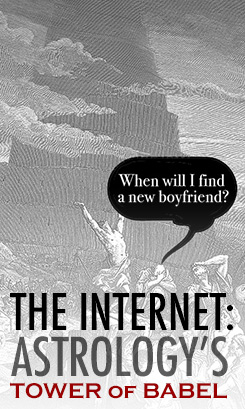Adam Curtis: Pop Culture’s Edgiest Truth-Teller
world today is through the eyes of the computers.” — Adam Curtis
I discovered documentary filmmaker Adam Curtis a couple of years ago when my friend, the writer John Calendo, forwarded me a link to Curtis’ 2011 film All Watched Over By Machines of Loving Grace with an ammendment: “This is weird, so you’ll like it.”
On the surface (not a good place to go for a description of Curtis’ work) this looked to be a documentary about how computers and people have come to co-exist. But no. This was a bold salvo that cracked open the notion of how computers have colonized the world by playing off of our inability to tolerate uncertainty and the unknown. Computers promise systems and control and people like control.
Remember in Stanley Kubrick‘s 2001, when HAL is slowly disassembled by Dave and the computer keeps moaning: “Stop. Don’t do that Dave. I can feel myself fading.” Well, that was a fine bit of prescience that Curtis’ film indirectly explores. Computers and feelings. Feelings as visions. Visions as the future. A ridiculous confluence? Not really when you consider the power of identification and what identification can wreak when wedded to machines.
Revisit the devastating economic crash that destroyed East Asia in 1997 or the ‘recovery’ we are still stuck in after the global economic meltdown of 2008 — all directly related to the manipulation of the markets via computers. Or doubly unimaginable, revisit the utopian visions of the counterculture movement in the 60s. Those dreamscapes of returning to the organic rhythms and glorious symmetry of nature.
Those were computer-based ideals that took hold like a fever as techno models more and more came to be considered the perfect matrix to build a new world upon. They do not exist in nature, as Curtis shows. Nature leans towards the chaotic. But not so, when framed in a computer-based template.
Even the title to Curtis’s film is taken from the hippie poet Richard Brautigan, who wandered through early 60s Haight-Ashbury, distributing xeroxed copies of his idyl to whomever would have them. Man and machine cohabiting in constant bliss. It seems a crazy conceit of the counterculture ethos, but, again, as Curtis shows, this concept was based on computer systems as matrixes for creating a better society.
His documentary, All Watched Over… disconcertingly opens with Pizzicato Five‘s pop song Baby Love Child bouncing through the soundtrack while images of people jacked into computer screens stream by. The rapt computer users remind me of those “dairying ants” that milk aphids for honeydew, a juice that’s excreted from the aphid’s ass. Meaning, there is a constant, never-broken attention loop projected into the computer screen, as if nourishing forces are flowing from the screen’s glow, into its viewers’ brain-holes. It is weird.
And then, boom, a disruptive cut, a studio tech’s blaring announcement amidst the disintegrating soundtrack and we’ve jumped back 55 years to a Mike Wallace interview with the doyen of capitalism, Ayn Rand — her dark, darting bird eyes scanning the studio furtively.
From that moment forward — and it took me days to play this out — I diligently found and watched every Curtis documentary that had been conveniently posted online.
Curtis’ perceptions aren’t glamorous or titillating in a traditional way. Though I enjoy his skillful, playful presentation of facts — his editing style being a mashup of PBS’s Ken Burns and a mid-career David Lynch. His aim involves taking labyrinthine themes and delving into them with all the fervor of an anteater discovering a new Tower of Babel. And the cross-connections he exposes — the synchronic goo that joins seemingly disparate elements of reality together — feels like delineating a fever dream as you tease out each wiggling thread.
Critics react to Curtis’ bombast and his driving method of displaying bleak truths (after you’ve been finessed and opened-up by the creepy charm of his visuals and Outer Limits-like audio) as something akin to the methods of a conspiracy theorist. But this is the way of our reactionary world and how distanced we’ve become from the analytic approach. Illuminate unsavory truths and you’re smeared as radical or unhinged. So, this is always a good sign that you’re onto something worthwhile: The creator’s been crowned crazy.
If you have not become wise to the set-up (which, in a nutshell, involves everyone being distracted into a stupor, via Reddit and Facebook, tabloid vagaries, monster sporting spectaculars and the quaint but antiquated belief [hope] in a bipartisan political system that cares about people when that prospect always remains just that: Never arriving, always promised) then you should start to wake up because it’s kinda fucked up.
When scientists tell us that our oceans will be emptied of fish by 2048, you’ve got to scratch your head (or ass) and realize that we are living, screamingly so, right at the heart of that classic Chinese curse: “May you live in interesting times.”
In the following interview — which starts off annoyingly scattershot — Curtis explains why it is so difficult for us to galvanize. No one can suss out what in the fuck is happening, and yet we’re drowning in information, which, again, is the nature of computer living, computer dreaming.
Computers offer two options: 1 or zero. That’s it. There’s just you, alone (the 1) with the nothing (the zero), so you keep going back to the delivery system that promises all of this startling connectivity and camaraderie, but it’s still 1 and zero, 1 and zero, translated: Get me the fuck out of here.
More self-sequestered ingestion of information is not going to do it for us. It can’t, no solid, feeling-infused narrative is possible from bits and bytes. The heart doesn’t understand that angular language — a human being, his or her presence — is required to make communion with other human beings.
So a new form of journalism — (as Curtis defines it) — a manner of delivery that will return the human factor into the equation — is yet to arrive. Think about what happened during the spurt of what was the Occupy movement, as Curtis notes:
“We are in a genuinely new world at the moment and no one knows its dimensions and they have to come up with something. The Occupy movement absolutely astonished me. They had a brilliant slogan the 99 and 1 per cent — that was the first time I thought someone’s got it, but then they completely blew it. I went to their meetings and they have been completely captivated by this pseudo-managerial theory of a new kind of democracy where there are no leaders and everyone sits around gesticulating if they disagree. It was one of the most absurd ideas in modern politics.”
He is describing more fallout from computer-hypnotization: The idea that a new kind of democracy can occur where there are no leaders, where buttons are pushed indicating ‘like’ or ‘dislike’ — the Facebook style of yammering in a newsfeed as it scrolls by, down and off your screen, while you wait for the next tidbit of distraction. Some snippet of information that is never the whole narrative, just something to like, ignore or share a link to.
I don’t believe reality is so complicated we can not decipher a way through. It behooves those who want people confused to make the reporting of conditions confusing, so there are no facts, no news presented — just someone’s opinion about what’s made available as news.
This is another facet of the interesting times that we live in; everyone has become an expert or a philosopher and free-thinking and deduction is sacrificed for kinship and factions. See Dave Eggers‘s The Circle .
These ‘interesting times’ are the same scenario that Gurdjieff portrayed in his monumental mythopoetic work Beelzebub’s Tales to His Grandson; while surveying earth from a spaceship hovering its periphery, the protagonist describes what he sees below — creatures whose “instinctive sense of reality” had evaporated. Greed, ambition, vanity, envy, self-love and pride had created a condition where everything had turned upside-down.
And what of humankind’s proudest evolutionary development? The mind. It had been transformed into “mills for grinding out nonsense.” Too, earthlings, he noted, lied all of the time without knowing it, to the point where any kind of truth made them crazy, riled and indignant. And what they deemed ‘education’ was teaching children to be fake and deceitful.
But most dangerous was the absence of what Gurdjieff called “organic shame and objective conscience.”
We can no longer tell the difference between right and wrong — and simply call ‘right’ whatever supports our interests and the interests of whatever faction or group we’ve become wed to.
This is the clusterfucked core within the Chinese curse. Where ‘interesting times’ is a euphemism for a failed social contract, and worse — a spiritual bankruptcy that depends on science to shore up its waning ethics, as if that enterprise was ever capable of such a feat.
So yes, our big failure needs a much simpler narrative to help us make sense of the general condition. Why our denial remains paramount is a question only an anthropologist 500 years in the future might explain, with all of the aftereffects to study and deduce — but in the interim there is Adam Curtis.
Get to know his work and then share your thoughts below; I’d like to hear if this post created an impact. Let’s hear your vision, your suggestions and solutions.
Photograph of Curtis by New Statesman.



















